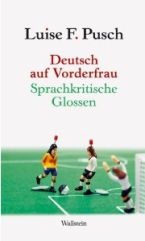
(Ingeborg Meyer [maiden name]; Ingeborg Lohse [married name]; Ingeborg Schwenkner [married name])
born on March 13, 1925 in Berlin, the Weimar Republic
died on June 1, 1966 in Berlin, The German Democratic Republic
German writer
100th birthday on March 13, 2025
Biography
“The quiet and unbearable truth” is a line from a poem by Inge Müller included in the collection Wenn ich schon sterben muß (t: If I Must Die). Her acclaim is based on this slim volume of poems published in the German Democratic Republic (GDR) in 1985, almost twenty years after she committed suicide.
Inge Müller grew up in Germany during the Third Reich. She was born to a couple who had yearned for a son and thus already as a child she experienced what it meant to be unwanted and to be an outsider. During the traumatic years of war, she had to dig her parents out of the rubble following a bombing raid; they had died. She herself once remained buried under debris for three days; she emerged alive. She later said she believed she had “survived merely by chance” and that after the war ended, she felt an irrepressible desire to “finally live.” Running, walking, and moving forward were key motifs in her poems. Inge Müller wrote most of them between 1961 and 1966, at a time when she saw fewer and fewer opportunities for free movement.
In simple, precise language and gestures, Inge Müller described in her poems the experiences that haunted her. She wrote of what an entire generation had never overcome: the guilt and suffering of both the war and the post-war period as well as the deep disappointment that followed shortly after having believed in the initial promise of a “new era” and “new people” in the GDR. The shattering intensity of her unconventional and distinctly female voice is unique and ensures Inge Müller a lasting place as an important German-language poet.
However, her poems were largely disregarded during her lifetime. Even her own husband, the playwright Heiner Müller – with whom she received the Heinrich Mann Prize in 1959 – failed to acknowledge the value and the full extent of her contributions. She was generally viewed as the writer of children’s books who also assisted her husband with his work. Nevertheless, she was deeply disturbed when in 1961 he was expelled from the Writers' Union and from cultural life in the GDR. “How can you not write poetry?” This question was Inge Müller's last, desperate attempt to overcome her growing isolation as a human being and as a woman who saw and wanted to see.
(Text from 1994; translated with DeepL.com; edited by Ramona Fararo, 2025.
Please consult the German version for additional information, pictures, sources, videos, and bibliography.)
Author: Christiane Zehl Romero
Quotes
Question
[...] I wanted to write
find colors
understand words
love
see
continue.
Who
is after me?
If you hold the rights to one or more of the images on this page and object to its/their appearance here, please contact Fembio.



